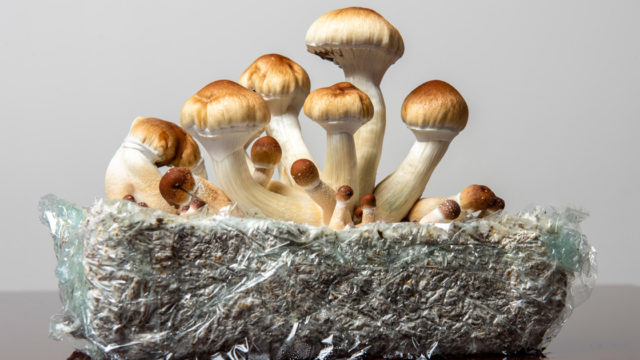Green Rush Advances With 2 More States Legalizing Cannabis
Some prominent leaders in the cannabis industry said they would have considered it a victory if even one state had legalized recreational weed sales during Tuesday’s midterm election.
As it turns out, two did, with cannabis continuing its steady expansion across America, making further inroads on the East Coast and in traditionally conservative strongholds.
While some advocates are no doubt disappointed that initiatives failed on three state ballots, at least a few executives are looking at the results from a glass-half-full perspective.
“It’s a message to the federal government that it’s time to move on things like safe banking and other legislation that’s critically important for the industry to grow,” Joe Hodas, CMO of Colorado-based Wana Brands, told Adweek. “Whether it had been one state or five, it’s substantive, and it shows the country is clearly ready for legalization.”
Residents in Maryland and Missouri passed ballot measures that clear the way for adult-use sales. Morgan Paxhia, co-founder of Poseidon Investment Management, called the outcome “a great step forward,” estimating an additional $2.6 billion in annual sales from the two states, accounting for a 10% jump from current sales levels.
On the flip side, initiatives in North and South Dakota and the Bible Belt’s Arkansas failed to garner enough votes to legalize recreational sales there. (All five states on the midterm ballots have existing medical cannabis programs in place.)
The Maryland decision—with an overwhelming 65.5% of the vote—means “another domino falls on the East Coast,” according to Ben Kovler, founder and CEO at Green Thumb Industries, with a provision that includes criminal justice reforms and related expungements.
“As witnessed in this election, more and more Americans are choosing cannabis for well-being,” Kovler told Adweek.
Separately, a movement to legalize psychedelics for medical use logged its second U.S. state when voters in Colorado passed Proposition 122 with 51% of the vote. (Oregon was the groundbreaker in 2020.)
Even in a state that was a pioneer in ending prohibition on weed sales in 2012, Colorado’s Natural Medicine Health Act wasn’t a sure thing. It passed by a small margin, with 49% of residents voting against it.
The election results come shortly after President Joe Biden pardoned federal prisoners convicted of minor cannabis offenses and promised to overhaul the country’s drug policy. Weed is still federally illegal—it’s a Schedule I drug with the same classification as heroin—but it could be rescheduled under Biden’s still-gestating plan.
The industry is expected to break its own records by year’s end, pulling in anywhere from $27 billion to $32 billion, per estimates from BDSA and New Frontier Data, while facing ongoing hurdles such as rising inflation, oversupply, dearth of capital and high taxes.
Cannamarch
Tuesday’s results mean that 21 U.S. states now allow recreational weed sales—which brings the total to 37 legal states plus Washington D.C., counting medical-only markets—giving the majority of Americans access to regulated product through licensed dispensaries.
There’s unprecedented public acceptance of the plant, with a Pew Research Center survey showing that 91% of the country favors some form of cannabis legalization.
Even so, Tuesday’s results diverged from the general election in 2020, when cannabis measures swept all five states where they were on the ballot (Mississippi, Montana, Arizona, South Dakota and New Jersey, with a mix of medical and recreational programs).
South Dakota, in a puzzling twist, showed up in both elections. In a nutshell, 54% of voters passed a cannabis legalization measure in 2020, but the state Supreme Court struck it down on procedural grounds, with Republican Gov. Kristi Noem leading the challenge. The re-do, with tweaks in the initiative, captured only 47% of votes.
Advocates point out that midterm elections have had historically low voter turnout, with those heading to the polls likely to be older and more conservative. Gen Z and millennials haven’t tended to vote in force. That fact may have worked against cannabis initiatives in Arkansas, North Dakota and South Dakota.
Oklahoma, which has a thriving medical market, would’ve been included in the election 2022 list, but its referendum to put legalization on the ballot was certified too late. Instead, there’s a special election scheduled for March 2023.
https://www.adweek.com/commerce/green-rush-advances-with-2-more-states-legalizing-cannabis/
